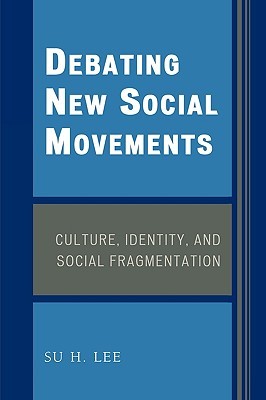
- We will send in 10–14 business days.
- Author: Su H Lee
- Publisher: University Press of America
- ISBN-10: 0761837698
- ISBN-13: 9780761837695
- Format: 16 x 22.9 x 2.1 cm, softcover
- Language: English
- SAVE -10% with code: EXTRA
Reviews
Description
This book is a straightforward exposition of the social-theoretical fields and problematic issues relating to contemporary social movements and identities. The issues important to 'new social movements' (identity, culture, diversity, power, and local activism) are examined by providing intelligible connections between the contrasting perspectives of critical theory and postmodern thought. Professor Su H. Lee analyzes the affinity between poststructuralist theories and new social movements in light of cultural multiplicity and social fragmentation, while questioning the political and ethical implications that arise from the political emblem of identity and difference. The overarching approach of Debating New Social Movements is both synthetic and analytic. It bridges disconnected themes under contrasting theoretical frameworks, and takes a stance from critical theory to expose significant shortfalls in the postmodern political and cultural thoughts on identity and social movements.
EXTRA 10 % discount with code: EXTRA
The promotion ends in 11d.04:05:50
The discount code is valid when purchasing from 10 €. Discounts do not stack.
- Author: Su H Lee
- Publisher: University Press of America
- ISBN-10: 0761837698
- ISBN-13: 9780761837695
- Format: 16 x 22.9 x 2.1 cm, softcover
- Language: English English
This book is a straightforward exposition of the social-theoretical fields and problematic issues relating to contemporary social movements and identities. The issues important to 'new social movements' (identity, culture, diversity, power, and local activism) are examined by providing intelligible connections between the contrasting perspectives of critical theory and postmodern thought. Professor Su H. Lee analyzes the affinity between poststructuralist theories and new social movements in light of cultural multiplicity and social fragmentation, while questioning the political and ethical implications that arise from the political emblem of identity and difference. The overarching approach of Debating New Social Movements is both synthetic and analytic. It bridges disconnected themes under contrasting theoretical frameworks, and takes a stance from critical theory to expose significant shortfalls in the postmodern political and cultural thoughts on identity and social movements.


Reviews